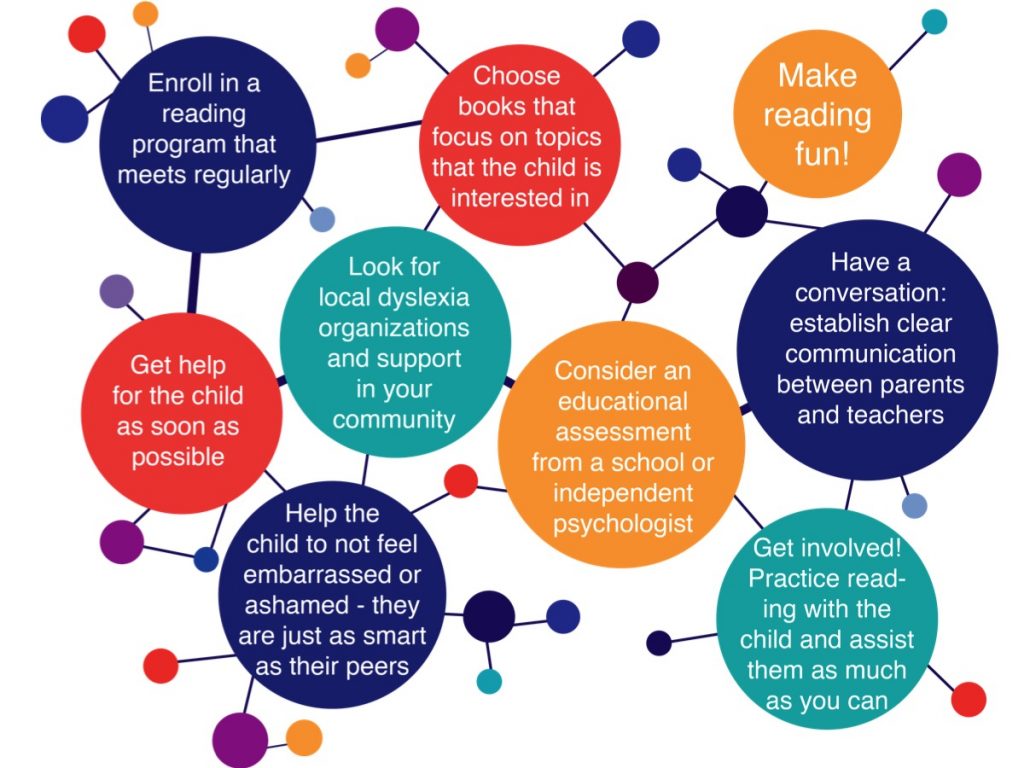
Putting it all together, what can we do to help those children who are struggling with learning to read? In the “Foundations of Literacy” module, we learned about how complex the act of reading is. We learned how the brain is making important changes long before the child enters school, building a solid foundation for learning to read. In this module we learned about the steps involved in developing explicit curricula to teach literacy. And we talked about why some children struggle in their pursuit of reading. We end this module with some overarching advice and guidelines for what research recommends for those children. First, talk to your child’s teacher; get their advice and point of view. If there is reason to believe your child might be a struggling reader, consider getting an educational assessment by a trained psychologist. See if your school provides support for children with dyslexia or other reading disabilities. If it does, have your child assessed by your school psychologist. Most importantly, if your child is identified as having a reading disability, get help as soon as possible. Figure out what supports exist in your community. Look for dyslexia organizations and parent groups in your area to join. Enroll your child in a reading program that meets regularly – a few hours per week is not enough! Also, get involved! Use this module and the resources on the next slide to assist your child’s progress in the classroom. Make sure your child doesn’t feel embarrassed or ashamed. Many brilliant minds have been dyslexic. Make sure they know that their struggle with learning to read does not mean they aren’t as smart as their peers. Finally, make reading fun and find a way to make reading part of your family routine. Not everyone has to grow up to be a bookworm, but learning to read is an asset that will empower your child to succeed at whatever skills their passions lead them to follow.
-
- Dyslexia
- a learning disability characterized by poor spelling and difficulties with word recognition and word decoding. It is unrelated to intelligence, motivation, or school experience
- Explicit instruction
- systematic and direct teaching that takes into account students’ prior knowledge
- Phonics-based reading instruction
- teaching focused on how letters represent sounds and how words can be sounded out by knowing letter-sound correspondences
- Plasticity
- the brain’s ability to change as a result of experience